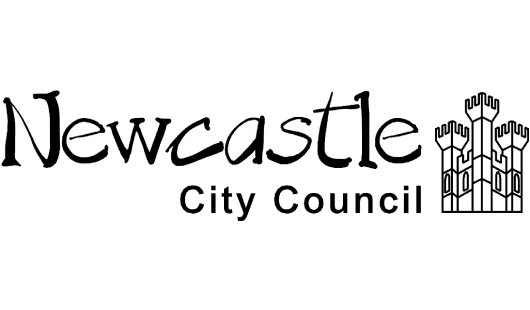
The Azul Java Hero Awards is an awards program to recognize individuals and organizations that demand more, expect more, and get more from Java.
Workday is a leading enterprise platform that helps organizations manage their most important assets – their people and money. With Azul Platform Prime, Workday reduced total pause time per JVM from 20,000 seconds per week to 14 seconds per week. The company also improved vertical scalability of key high-performance services from 200GB to 6TB. Workday’s improved operational efficiency managing its Java runtime by over 95%, eliminating over 42,000 person-hours across an 18-month period. Instead of spending time performance tuning and troubleshooting, Workday saved millions of dollars while freeing its developers to do more productive work.

SGX FX, formerly BidFX, is a pioneer in developing foreign exchange (FX) trading technology solutions that set new industry standards for functionality and performance. Trusted by over 200 leading banks, asset managers, corporates, and hedge funds, BidFX has established itself as a dedicated and innovative FX technology partner.
In its commitment to providing unparalleled performance and reliability, BidFX transitioned its 10 billion messages per day SaaS trading platform from Oracle Java to Azul Platform Prime. This transition underscores BidFX’s ability to manage a high volume of transactions at optimal speed, ensuring minimal latencies and exciting our clients with the possibilities of faster trading.
Paul Sweeny, Chief Architect at SGX FX, highlights the transformative impact of this partnership: “Working with Azul Platform Prime, we have achieved exceptional transaction processing speeds and reliability, enhancing our overall platform performance.
“Latency in a large system is like a bar of soap; just when you’ve got it pinned down in one place, it skates off and pops up elsewhere. With Azul, we can focus development on GC-free solutions in the critical components and let Azul Premium Prime address GC latencies everywhere else. Regarding Java performance, I seldom worry about garbage collection because Azul takes care of it.
“Our collaboration with Azul Platform Prime demonstrates a significant advancement in FX trading technology, reinforcing its position as a leader in the industry and instilling confidence in our clients.”

Newcastle City Council (NCC) in the UK is the local government authority for the metropolitan borough of Newcastle upon Tyne. Committed to maintaining the highest standards of security, NCC conducts annual security audits. While these audits had previously highlighted Java related vulnerabilities due to unsupported versions by Oracle, NCC took decisive action to address these challenges without disrupting their essential Java based line of business systems used daily by approximately 1,100 employees.
Understanding the importance of both functionality and security, NCC made a strategic move to Azul Platform Core, allowing for them to support older versions of Java without needing to upgrade to newer releases.
This transition not only fortified their Java environment across 5,000 desktops but also ensured that their systems remained robust and efficient. As a result, NCC now enjoys a fully supported and secure Java framework, eliminating previous vulnerabilities and ensuring compliance with the Public Services Network (PSN) requirements. This progressive decision underscores NCC’s dedication to technological excellence and the safety of its digital infrastructure.
Teledyne Controls is a leader in aircraft data management solutions and a subsidiary of Teledyne Technologies which has more than 13,000 employees worldwide.
A portion of our interview with Jeff Korpa:
What were the problems faced using Oracle Java SE?
In January of 2019, Oracle ended free public updates for commercial use of Java. Updates would only be available with an additional cost subscription. Additionally, in April of the same year, Oracle unveiled a new Java license (the Oracle Technology License Agreement for Oracle Java SE) which increased the cost for using Oracle Java.
What was done to resolve this problem?
When I became aware of the changes that Oracle had made, I began to take steps to phase-out the use of Oracle Java SE from the various software tools / software applications that I managed. My first foray into an Oracle Java replacement was OpenJDK. This was a free, drop-in replacement that worked well – at first. The problem with using a free alternative to Oracle Java was that the only patches that I could obtain were Patch Set Updates (PSUs). PSUs include changes, security updates, bug fixes, and performance enhancements. What this meant was that I now had to regression test a given PSU for each application I managed. As it turns out, I did uncover a regression in 2020, but overall, engaging in this sort of testing was not really a beneficial use of my time. This is because if I could just obtain Critical Patch Updates (CPUs), I would not have to do any testing: CPUs only contain changes related to security patches! To the best of my knowledge, there are only two providers of CPUs: Oracle and Azul. Obtaining CPUs from Oracle was no longer desirable due to:
How did Azul contribute to this solution?
Azul was able to provide access to CPUs at a much more competitive price point than Oracle. In addition, Azul’s support was excellent: they were able to answer my migration-related questions quickly, accurately, and professionally. Thanks to Azul, all of the software tools / software applications that I manage are now using the world’s best supported builds of OpenJDK (i.e. Azul Platform Core).

LMAX Group is a global financial technology company and the leading independent operator of multiple institutional execution venues for FX and digital assets trading.
With offices in 9 countries and a global client base, the Group builds and runs its own high performance, ultra-low latency exchange infrastructure, which includes matching engines in London, New York, Tokyo and Singapore.
The Group employs a cutting-edge approach to technology, architecture and software engineering, which is a blend of in-house pioneering proprietary technologies and best-of-breed third-party software, aimed at optimised execution quality. Its ongoing technology investment has ensured resilience, security and capacity of its exchange boasting 100% uptime. LMAX Group processes sustained volumes of over 100,000 orders/second capable of bursting to almost a million orders/second per exchange at peak.
LMAX Group and Azul have seen a close third-line, mutually beneficial engineering partnership for over a decade by trading performance figures, code and test suites. This has greatly contributed to the enhancement of LMAX Group’s leading low-latency trade execution capabilities and has enabled the team to focus on innovating to scale rapid growth.
Taboola powers recommendations for the open web, helping people discover things they may like. The company’s platform, powered by artificial intelligence, is used by digital properties, including websites, devices and mobile apps, to drive monetization and user engagement. Taboola has long-term partnerships with some of the top digital properties in the world, including Yahoo, CNBC, BBC, NBC News, Business Insider, The Independent and El Mundo.
Around 18,000 advertisers use Taboola to reach nearly 600 million daily active users in a brand-safe environment. Taboola is a leader in powering e-commerce recommendations, driving more than 1 million monthly transactions, with leading brands including Walmart, Macy’s, Skechers and eBay among key customers.
Taboola relies on big data and personalization to successfully place relevant content for individual users. Timeouts, pauses, and slow performance are not acceptable. With Azul Platform Prime, Taboola improved performance and flattened the 95th percentile of the SLA. This use case spans multiple technologies within the tech stack, impacting the performance of open-source software such as the Cassandra (C*) database and internally developed Java applications. Taboola reduced its database server footprint by 50% and its front-end server footprint by 30%. This reduction in server count translates to hundreds of servers and significant savings in both cost and environmental impact.
Jagex is a British video game developer and leader in creating deep and engaging live games on PC and mobile. Jagex’s flagship MMORPG, RuneScape, has welcomed over 320 million player accounts to its world and is a $1.5 billion lifetime revenue franchise. Today, the RuneScape franchise exists beyond live operations; their titles are forever games that connect and inspire millions of players with content and experiences both inside and outside of inexhaustible game worlds. Both RuneScape and Old School RuneScape offer ever-evolving, highly active worlds, and their community-focused development ethos empowers players to have a real say in how each game is shaped.
At one time, pauses and lags in the Java-based platform were causing delays and impacting the gamer experience. Jagex used Azul Platform Prime to eliminate ticks over 600ms, erasing any pauses a gamer can detect while playing. Jagex improved gaming performance by 20% and massively improved the overall gaming experience.
Travelport is a global technology company that powers travel bookings for hundreds of thousands of travel suppliers worldwide. Without Travelport, many travel agencies and websites would be unable to serve up options like checked bags, seat selections, upgrades, and even ticketing. It is one of the top three global distribution systems (GDS).
Travelport’s application suite was experiencing spikes of reduced performance until it implemented Azul Platform Prime on two applications. On an ETL (extract, transform, load) process, response times immediately improved, allowing Travelport to publish travel content to its customers even faster. From 2019 to 2022, Travelport also reduced a query application’s response time by an impressive 80%, lowered its error rate, and virtually eliminated slower and stalled transactions. In addition, Azul enabled Travelport to reduce server use by 33% over a period where transaction volumes increased by 19%, resulting in significant cost avoidance.